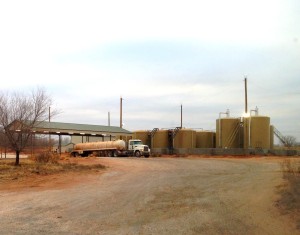This week I was literally all across the state of Texas at various programs. From Monahans discussing oil and gas leasing, pipeline easement negotiations, and water law, to Caldwell speaking on groundwater ownership, to Diboll discussing eminent domain and pipeline easements for forest landowners, to Corrigan on Friday discussing grazing leases, water law, and generational transfer. Each stop had an outstanding turn out and great participants who were engaged and interested in the topics. Folks like that make my job more fun! A big thanks to all of the program organizers for inviting me (Caleb Eaton, Bobby Mizan, Shane Harrington, Eric Taylor, Omkar Joshi, and Jo Smith) and welcome to those of you joining the blog from these programs.
It has been a busy week in ag law related news.
* Trial judge rules against Eagle Ford landowners in nuisance case against oil company. A Karnes County judge granted summary judgment in favor of Marathon Oil Corp, Marathon Oil EF LLC and Plains Exploration and Producing Co. on Thursday in a case filed by landowners claiming that production near their property constituted a nuisance. The plaintiffs claimed injuries and illness was caused by air emissions from wells operated by the defendants. The judge reasoned that the plaintiffs were unable to prove causation–namely that the plaintiff offered no evidence that the damage was caused by emissions from these two specific oil and gas companies as opposed by other means (or other companies in the area). It is expected that the plaintiffs will appeal to the San Antonio Court of Appeals. There are numerous similar lawsuits currently pending in the area. [Read article here.] As you may recall from this prior post, a Dallas County jury recently considered a similar case and found in favor of the landowner, awarding $3 million.
*Texas Railroad Commission to Publish Revised Proposed Disposal Well Rules. The Texas Railroad Commission has passed proposed rules that would modify the requirements on companies seeking to drill disposal wells. The proposed rules would require drillers to provide additional information before receiving a permit, including information about the history of seismic events recorded in the area, and would allow the RRC to suspend or cancel a permit if seismic activity occurs near an injection well. The proposed rule will be published in the Texas Register and public comment will be open through September 29, 2014. [Read article here.]
* San Antonio Continues to Consider Groundwater Supply Project Pipeline from Burleson County. The San Antonio Water System continues to evaluate and negotiate with private companies to pipe 16 billion gallons of water per year from Burleson County in Central Texas to San Antonio at a cost of approximately $3 billion. Discussions and negotiations are ongoing and questions remain about how much the project would cost rate payers, whether the water is actually available in Burleson County for this type of project, and what impact future curtailment on pumping by the GCD might have on the project. The companies in negotiations with the SAWS for the project claim to have already secured a number of water rights from landowners and water permits necessary to complete the pumping from the Post Oak Savannah Groundwater Conservation District, which includes Burleson and Milam Counties. Once negotiations are finalized, the San Antonio City Council would still have to approve related rate increases for consumers. [Read article here.]
* Lawsuit Challenging Utah’s “Ag Gag” Law Allowed to Go Forward. Last week a Utah judge denied the state’s motion to dismiss a lawsuit challenging the constitutionality of the Utah “Ag Gag” legislation. The statute, passed in 2012 makes it a misdemeanor for a person to enter a farm under false pretenses and make recordings of the operation. The judge did, however, dismiss two groups of plaintiffs from the case–members of the media and academics who challenged that the law violated their First Amendment Right to report on the results of such prohibited investigations–finding that journalists were not likely to be prosecuted for disseminating results of investigations. The remaining plaintiffs, PETA, the Animal Legal Defense Fund, and activist Amy Meyer who was initially prosecuted under the law before charges were dismissed, were allowed to carry on with the suit. [Read articles here and here.] To read more about “ag gag” laws, click here.












